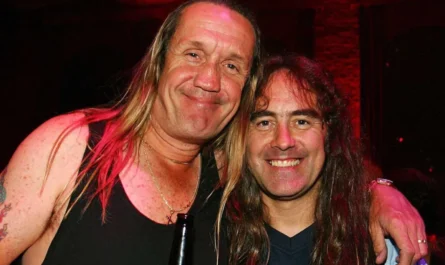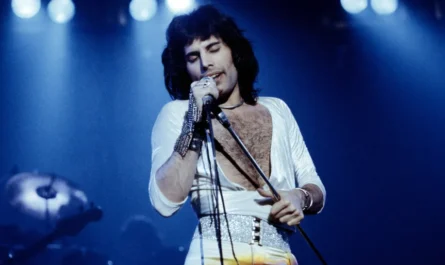Back in July, a video came up on my algorithm. On stage stood Lola Wild, a London-based artist, and she was going off on the corrupt nature of promotion companies preying on up-and-comers.
“He basically gets emerging artists and exploits them,” she’s saying into the mic, putting on blast the very people who booked her for the gig. In the comments, over 800 people, including new artists you know and love, were going off too – Wild’s story isn’t a shocking one at all, it seems that every single one of them knows it well.
Wild, really, had been lucky. After gigging for a long time, this was her first experience running into this situation. “Earlier this year, I had my first bad experience with a promoter, which pushed me to speak out about their unethical practices on stage, during a gig,” she told me.
What happened is something that almost any up-and-coming artist could tell you by heart now. Wild was booked by one of the classically dodgy ‘promoters’ who essentially put together a line-up and do no real work beyond that. The task of selling tickets falls on the artist because in many cases, they won’t get paid if they don’t, or, in even worse ones, the artist themselves has already had to pay for them in a ‘Pay to Play’ scheme where the band have to buy a bulk of tickets from the promoter and only make that money back if they sell them.
This has been going on for years. The promotion company Wild was calling out on stage at their own show are a well-known one in London, who changed their name a few years back after they were criticised for the same thing. Ethan Beer, now a music manager and head of PR, had experience with that old company, sharing correspondence from 2016 in which he, the artist, was being asked to pay the promoters in three instalments of £80 as he, the artist, sold the tickets.

And if you don’t sell the tickets? You’ll be dropped from the lineup – that’s the intimidation tactic. “The way they operate is they’ll mass-message independent musicians, drop the names of big venues to hook them in, then pressure bands to sell tickets months in advance just to ‘earn’ a spot on the lineup. If you don’t hit their quota, they threaten to drop you and refuse refunds for fans who already bought tickets,” Wild explained, with that same experience being backed up by countless other artists, both in her comments and direct to me during conversations trying to understand this issue.
Sweet Unrest could relate to that experience, adding that the impact of these promoters is also a social one. “Your friends end up fucking hating you,” singer Jack River said, as not only are bands left begging their friends to buy to not be making a loss, but the bands in the same scene who should be supporting one another are pitted against each other because their spot on a lineup is in direct correlation with sales, making it competitive and quantitative.
But even when artists hit that quota, it’s still not just. “Even when you do sell, the math is shocking – tickets go for £14+ each, but artists only see £1-2 per sale,” Wild explains, “On top of that, they put zero effort into curating lineups, mash random genres together, and badger you with calls to push more tickets. The whole thing is exhausting for artists and disappointing for audiences.”
Despite calling themselves promotion companies, it seems clear that they actually do little of that. “They’re not promoters at all,” Rivers said, “A promoter should promote the event, not just sap all the joy out of it.”
Instead, the job of promoting the gig falls onto the shoulders of the artists who will not only be penalised monetarily by having their fees cut, revoked or losing out on money from the tickets they already bought, but who are also being intimidated by these promoters. In her experience, Wild recalled intense phone calls with the promoter of the show, constantly pushing her to tell more and post about it constantly. She even shared that it’s a common clause in contracts for these small gigs, of which the artist is getting paid very little, to demand and monitor exclusivity, making it clear that they’re monitoring the artist and will cancel their set if it’s not adhered to, further impacting an artist’s earning potential.
It’s pertinent that in examples of these contracts shared by artists, there are typically far less bullet points under “promoter responsibilities”, than things the artist is responsible for, including having to share anything and everything the promoter tags them in. The imbalance is clear in these cases, and the issues are right there in writing.
“Turns out, these kinds of promoters are everywhere, not just London, and they often rebrand under new names whenever their reputation tanks. It’s basically a copy-and-paste scam that keeps repeating. That’s why it’s so important to know the red flags,” Wild says, having become passionate about protecting artists from these schemes.

“We work our fucking arses off. We put our heart and soul into our music, and to be treated like fucking cattle is unbelievable,” she says direct into the mic as the promoter’s logo hangs behind her. But fear not, they weren’t even there! After getting the artists on their lineup to do all the work for them and bring them a profit, they don’t even show up to support the bands they claim to be backing.
For 24 hours, simply in my own small reach on social media, I asked on my Instagram story for musicians to share their experiences with bad promoters – instantly, the response became overwhelming. Maximilian from Brighton revealed that he hadn’t been paid for a gig, one I’d been to and enjoyed, and that he was now being ghosted by the promoters. Chloe from Thwack shared an experience of being made to feel deeply uncomfortable by a promoter touching her physically while discussing booking the band again. Just Kids, Tilly Louise, Hamartia, San Vito – artists spreading up and down the country, all with a story to tell.
The reasons why this is bad are obvious on so many levels. There is the monetary evil in which promoters ask bands to foot a cost before they’ve even played, or then revoking fees later on is a further hurdle that pushes working-class artists out when they can’t afford that or would quickly be pushed to give in if playing a gig was costing them money, rather than earning them it.
River and Wild both point out the social side that this competitive scheme does not foster community, and that’s what artists so desperately need. To Wild, putting it succinctly, it’s “killing the grass roots industry”, crushing its spirit by piling on the stress and the injustice, and also simply ruining the fun.
But mostly, and undeniably, it’s corrupt. “They always push for phone calls too, so there’s no written record of their shady deals,” Wild points out as another glaring red flag that allows these companies to keep escaping any true action against them
So the action has to come from the artists. “The best way to fight back? Don’t play their game. Boycott these promoters,” Wild says as a rallying cry. “Independent promoters who genuinely care about music already exist – they build thoughtful lineups and book artists based on talent and credibility, not sales. Or better yet, put on your own gig. It’s more work, but infinitely more rewarding.”






